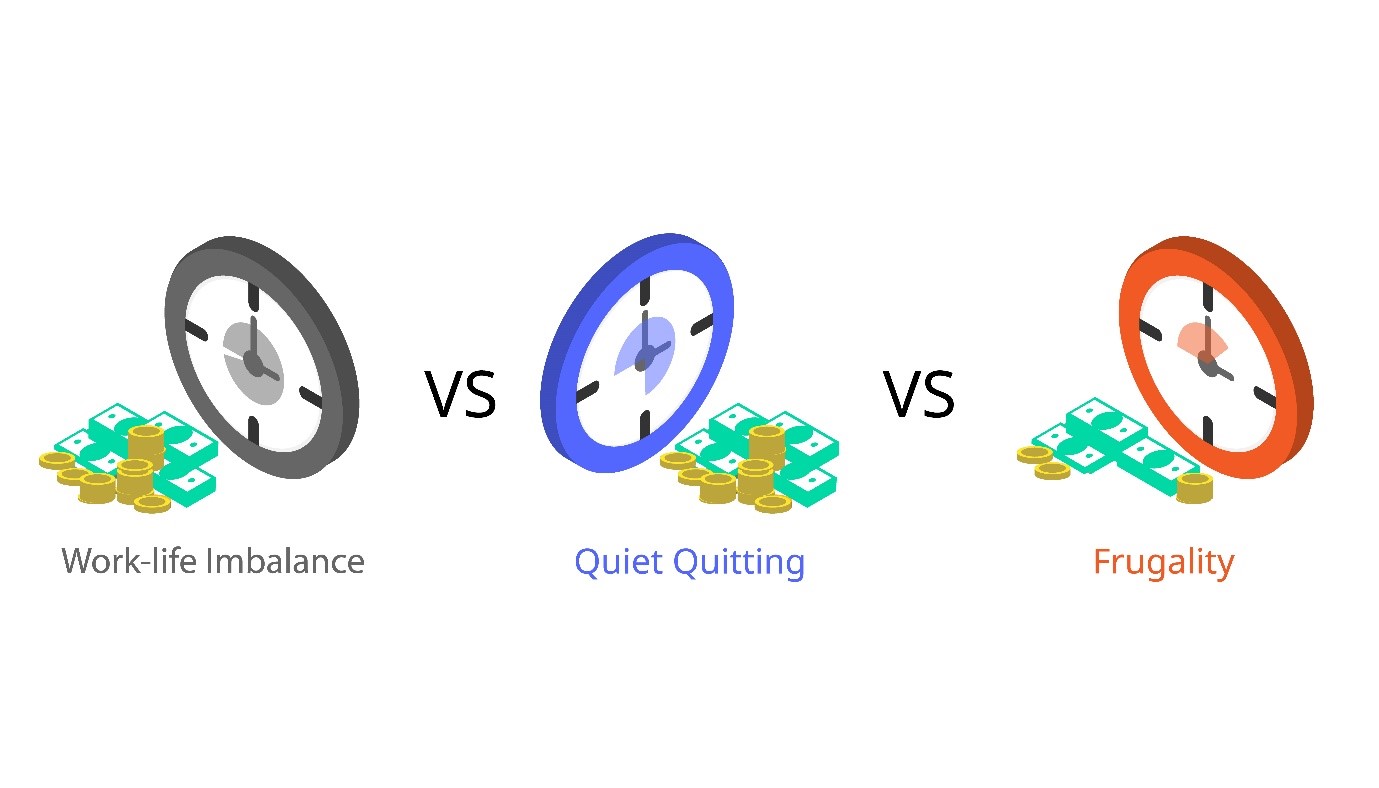What is Quiet Quitting?
The phenomenon of ‘quiet quitting’ is also referred to as ‘acting your wage.’ The latter better describes an employee’s decision to do the bare minimum and not work extra hours or take on extra duties. Like the Great Resignation, which dominated headlines in 2021, the trend has been fuelled by social media. Both are also linked to declining employee engagement. According to Gallup research, 79% of workers complain that ‘they don't find their work meaningful’ and feel ‘work is just a pay check.’
Why are Companies Worried about Quiet Quitting?
The same study also found that ‘unhappy and disengaged workers cost the global economy $7.8 trillion in lost productivity.’ This is particularly relevant in the UK, which has the ‘lowest employee engagement level across the globe.’ Declining productivity is something companies can ill afford as the UK economy remains in crisis with slow growth (0.9%) since it ground to a halt at the onset of the pandemic in 2020.
In addition to affecting productivity and profits, quiet quitting can cause problems in workplace culture. Having quiet quitters on the team gives committed employees the unenviable choice of picking up the slack, increasing their workload (and likelihood of burnout) or joining in the revolt.
What’s driving the Quiet Quitting trend?
The Great Resignation was driven by a need for greater engagement, with employees asking ‘does work add meaning to my life?’ Whilst quiet quitting also questions the value of work, this includes wanting effort to be recognised both in terms of opportunity and support with rising costs of living.

Pay
As quiet quitting is said to have been sparked by a viral post on TikTok, it’s no surprise that workers aged 18-30 (Gen Z and younger Millennials) are thought to be at the centre of the trend. The ‘acting your wage’ hashtag seems focused on a sense of unfair pay and 2022 DeLottie research found pay was the number one reason workers in this demographic left their roles in the last two years.

Whilst research suggests younger generations tend to prioritize a better work-life balance, rising costs of living in the UK are encouraging all workers to prioritise pay more highly, over status or even belief in a company’s mission and purpose.
Lack of Work / Life Balance
For many, lack of work-life balance was increased by working from home during the pandemic. Having no clear distinction between work and home resulted in many not taking proper breaks, working extra hours or finding it difficult to switch-off.
A heavy reliance on tech for communication also meant some employees were bombarded with emails, texts, and zoom calls, even out of hours. Resistance against working extra hours and upholding the ‘right to disconnect’ are expressed frequently in discussion around quiet quitting on social media.
Burnout
Another factor driving the quiet quitting trend is the rise in employee burnout.
HR software provider Breathe suggests 65% of UK employees said they are also less likely to take sick leave when working remotely. One quarter of respondents said they were ‘too busy to take time off’ and 20% said they ‘felt pressured to work through it.’ A study conducted by YouGov also found that 39% of workers took less holiday whilst working from home during the pandemic.

Poor Management
The Gallup State of the Global Workplace study suggested the factor most affecting levels of employee engagement is the quality of management. This was echoed by a recent article by The Independent, which featured the following extract from a LinkedIn post by quiet-quitter Bonnie Dilber:
‘You don't receive feedback or praise. Your 1:1s are frequently cancelled or shuffled around. You don't get invited to work on cool projects or stretch opportunities. Your manager never talks to you about your career trajectory. This happens ALL THE TIME.”
The complaints in this post suggest a major driver of quiet quitting comes from managers lacking the ability to make employees feel motivated or valued. This sentiment is shared in
Harvard Business Review’s recent article Quiet Quitting Is About Bad Bosses, Not Bad Employees.

This article found that ‘the least effective managers have three to four times as many people who fall in the “quiet quitting” category compared to effective leaders. Weak managers had 14% of their direct reports quietly quitting, compared to only 3% of managers who were rated highly at ‘balancing results with relationships.’
What can Employers do to Prevent Quiet Quitting affecting the Workplace?
Keep the Channels of Communication Open
Giving employees a voice keeps the lines of communication open. Employers should seek to make employees feel comfortable about raising concerns, whether about management issues such as better appraisals, career paths or addressing work / life balance.
Encouraging feedback allows employers to keep track of levels of employee engagement. It also prevents the likelihood that employee concerns will quietly fester. Listening to and actively addressing concerns makes it less likely that engagement levels will fall. It will also help to identify where employee / employer problems stem from.
Be Proactive about Work / Life Balance
Promoting a good work-life balance is important for maintaining engagement at work. As well as not expecting employees to frequently work extra hours, ensure your team takes their holiday allowance plus sick days as they need. Staff who take holiday leave report better levels of engagement on return, which reduces the likelihood of absences through stress and burnout.
Workers may need to encouragement to see taking time off as being valued by the company culture. Members of Forbes Human Resources Council suggest leaders model the following good practice to encourage workers to use paid time off:
- Link part of the performance bonus to using vacation leave
- Allow employees to use a blend of saving and utilising their paid time off
- Ensure staff have someone covering their role so that they don’t dread coming back to work
Create Opportunities for Growth
If an employee feels they have no scope for promotion or developing their skills it is more likely they will feel disengaged. Mapping out clear career paths for how employees can advance within the company increases motivation. Providing training and development opportunities regularly maintains interest by offering employees new challenges.

Make sure Employees feel Valued
Employees need regular feedback to be feel motivated at work and care more about the quality of their work. Ensure managers use a blend of both positive and constructive feedback and take time to acknowledge when employees' have gone the extra mile.
The Workplace as a Value Exchange
Quiet quitting is a controversial issue and its proponents have received mixed responses in the media. Although quiet quitting may not be a positive way of bringing about change, many of the issues driving workers to react were negatively affecting employee engagement before quiet-quitting became a buzz word.
Evaluating workplace engagement and listening to employee concerns can help companies avoid resentment between workers and employers developing. Offering employees opportunities for development or a better work / life balance fosters a culture where employees feel valued and want to give value in return.

Developing a greater awareness of employee expectations, both in the workplace and during the recruitment process, can also prevent problems later on around productivity and engagement.
